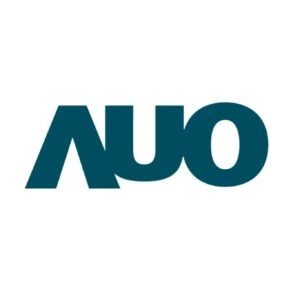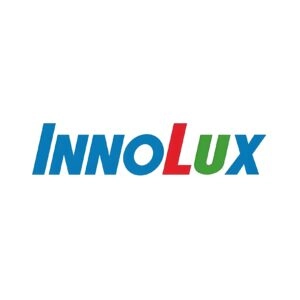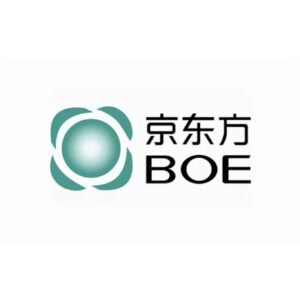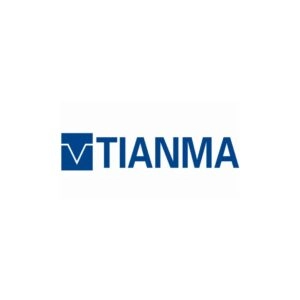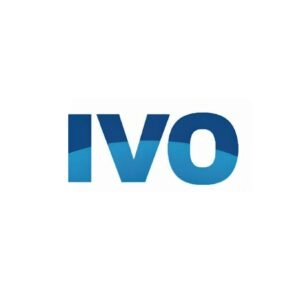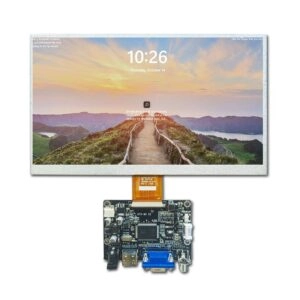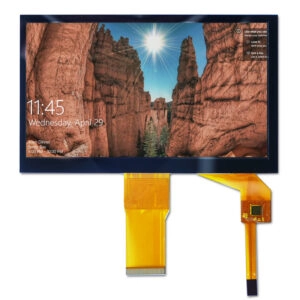What Makes Transparent Screens So Unique
Transparent digital screens aren’t just thinner versions of regular displays. They’re built differently—from the core technology to the way content gets displayed. You’re not dealing with a black screen that lights up. You’re working with a display that lets light pass through while still projecting digital content on the same surface.
There are two primary types of transparent screen technologies: Transparent OLED (TOLED) and Transparent LCD (TLCD).
Transparent OLED displays use self-emissive pixels, meaning each pixel generates its own light. This allows for deep blacks, better contrast in low-light environments, and a thinner profile since no backlight is required. However, they can struggle in bright settings where ambient light competes with the display.
Transparent LCDs, on the other hand, rely on external lighting to make content visible. They offer higher transparency rates—up to 70%—but at the cost of visual clarity and contrast if not properly lit.
The internal architecture of these displays is meticulously engineered. Components such as transparent electrodes made from Indium Tin Oxide (ITO), active matrix backplanes, and ultra-thin alignment layers ensure that image rendering remains crisp without obstructing visibility. This results in a screen that behaves like digital glass—blending seamlessly into its environment.

Why Transparent Screens Are Gaining Serious Ground
See-through screens aren’t riding a tech trend—they’re solving real, visible problems. Retailers and event designers face challenges with traditional signage that blocks products or disrupts spatial harmony. Transparent screens address this by allowing digital content to coexist with physical objects.
They layer digital content directly over the physical product—highlighting, labeling, and animating without hiding. This is especially valuable in industries like fashion, electronics, cosmetics, and automotive retail.
In exhibitions or brand activations, transparent screens offer the ability to add motion and media to glass cases, shelves, and front-facing displays without the bulk of traditional signage. Their thin profiles and modularity make them ideal for space-constrained installations.
Modern store design is moving toward lighter, open-concept displays. Transparent signage aligns perfectly with that direction. They reduce visual noise by staying passive when not in use and only activating when needed—helping brands avoid overstimulation in premium settings.

Why Luxury Brands Are Buying Into Transparency
Luxury isn’t loud. It’s precise. High-end brands use transparent screens not because they’re flashy but because they preserve visual integrity while enabling subtle storytelling.
Minimalism conditions the buyer to perceive exclusivity by reducing visual clutter and drawing sharper attention to the product’s physical details. Transparent displays support this approach by overlaying minimal yet impactful animations or product identifiers directly onto display cases or shelves.
They also eliminate the need for frequent physical redesigns during seasonal campaigns. Visual content can be mapped to specific product zones using pixel-level targeting and transparent overlays.
For ultra-premium items like luxury watches or jewelry, Miqidisplay’s 30″ Luxury Transparent OLED Display showcases jewelry, watches, and luxury goods with lifelike clarity. It offers an infinite contrast ratio ranging from 108000:1 – 135000:1, ensuring every detail pops without overshadowing craftsmanship.
Transparent screens also support personalized experiences within VIP lounges or clienteling rooms by preloading customer-specific content activated during private appointments. It’s not personalization through abundance—it’s personalization through curation.
Where Transparent Screens Work Best—and Where They Don’t
Transparent signage excels where aesthetics meet function:
- Retail Storefronts: Ideal for fashion flagships and tech showrooms where products remain visible behind animated overlays.
- Museums & Exhibitions: Used to explain artifacts without covering them.
- Automotive Showrooms: Perfect for displaying specs over real vehicles.
- Hospitality Spaces: Integrated into partitions or counters for ambiance-enhancing visuals.
However, they’re not suitable everywhere:
- Outdoor Environments: TLCDs struggle under direct sunlight, while TOLEDs lack high-luminance output.
- Fast-Paced Retail: In discount chains or supermarkets where bold messaging is key, traditional LED displays still outperform.
- Data-Dense Interfaces: For dashboards or menu boards requiring detailed information delivery, opaque screens remain superior.
Use transparent displays where the product or environment deserves to be seen through—not replaced.
Best Screens and Tools for Transparent Signage in 2025
As adoption grows across industries, selecting the right hardware becomes critical. Miqidisplay offers a wide range of transparent LCD/OLED solutions tailored for various applications:
- 21.5” Transparent LCD Touch Screen with Android/PC systems
- 43” Transparent Showcase Display ideal for museums
- 55” Transparent Display Case Box available in 4K resolution
- 77” Interactive OLED Screen designed for holographic retail experiences
- 98” Transparent Display Box built for cultural heritage preservation
Each model features Grade A panels housed in durable metal bezels along with HDMI/VGA inputs via integrated media boards. Sizes range from 10” up to 98”, offering both HD and 4K resolutions—with optional touch capabilities.
FAQ
Q: What types of transparent screens are available?
A: There are two main types—Transparent OLED (self-emissive) and Transparent LCD (requires external lighting).
Q: Where do transparent screens work best?
A: High-end retail stores, exhibitions, museums, automotive showrooms, hospitality spaces.
Q: Are these screens touch-enabled?
A: Yes. Many Miqidisplay models support capacitive or infrared touch functionality depending on size and application.
Q: Can I customize screen sizes or interfaces?
A: Yes. Miqidisplay offers full customization including bezel-free designs, interface integration (HDMI/USB), brightness tuning, mounting options, and more.
Where Miqidisplay Transparent LCD/OLED display Fits Into Transparent Signage Projects
Miqidisplay’s transparent displays feature Grade A panels in metal bezels with integrated media boards supporting HDMI/VGA inputs across sizes from 10″ to 98″. These displays are customizable—with options like bezel-free frames and protective glass—to suit diverse deployment needs.
They’ve been effectively deployed across industries:
- A jewelry brand in Paris uses 46” transparent OLEDs projecting 3D diamond designs over real products—boosting engagement by 45%.
- Tokyo’s subway installs transparent platform door screens showing ads/train schedules—reducing confusion by 30%.
- British Museum overlays holographic histories onto ancient artifacts using transparent panels—increasing dwell time by 2x.
With additional services like touchscreen upgrades (capacitive/resistive), interface modifications (HDMI/USB), PCB tweaks, custom backlighting solutions—and even antibacterial coatings for medical use—Miqidisplay ensures each project receives tailored precision engineering.
Wrapping Up: Bring Transparent Signage to Life with Miqidisplay :call to action for business
If your business seeks a transformative way to merge digital storytelling with physical presence—without compromising aesthetics—transparent screens are your next frontier. Whether you’re curating immersive museum exhibits or upgrading luxury storefronts,
Miqidisplay stands ready as your one-stop solution provider offering end-to-end customization across LCD/OLED technologies. Submit your project requirements today—and let our experts deliver a personalized solution within 48 hours tailored precisely to your vision.
Ready to see what transparency can do? Contact Miqidisplay now —or explore our extensive catalog online.
